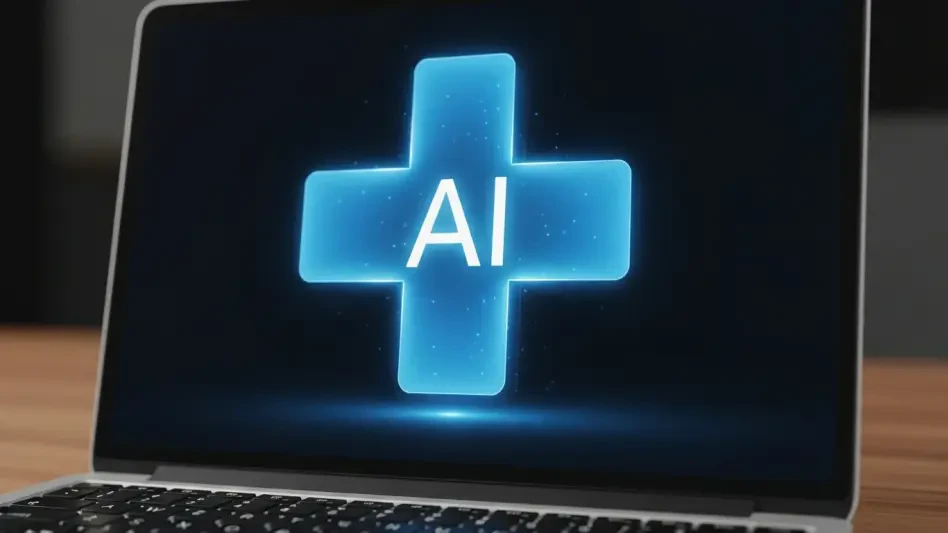Setting the Stage for Transformation
The healthcare industry stands at a critical juncture, grappling with skyrocketing costs, uneven access to care, and the urgent need for personalized treatment. Amid this complex landscape, AI-driven platforms have emerged as a beacon of hope, promising to reshape how care is delivered and managed. With the potential to impact over 85 million patients across diverse populations, including U.S. military veterans, these technologies are not just tools but game-changers. This review delves into the capabilities of platforms like GW RhythmX, a leader in integrating artificial intelligence with clinical and operational systems, to uncover how they address systemic challenges and redefine patient outcomes.
Core Features of AI Healthcare Technology
Precision Care AI Platform: A Data-Driven Powerhouse
At the heart of AI-driven healthcare solutions lies the Precision Care AI Platform, a sophisticated system that unifies disparate data sources. By integrating clinical records, payer information, financial datasets, and social determinants with electronic health records (EHRs), this platform creates a comprehensive view of patient health. Its ability to deliver real-time clinical and operational recommendations sets it apart, boasting metrics such as over 25,000 clinical validations and 300,000 personalized treatment suggestions. This functionality empowers health systems to predict disease progression and identify undiagnosed conditions with remarkable accuracy.
Beyond clinical insights, the platform excels in optimizing financial performance. It streamlines coding and billing processes to ensure revenue integrity, addressing a critical pain point for many institutions. Such a dual focus on care quality and fiscal health positions this technology as an indispensable asset for over 150 health systems currently leveraging its capabilities. The seamless melding of diverse data into actionable outcomes underscores its role as a cornerstone of modern healthcare innovation.
Digital Patient Engagement Tools: Bridging Gaps in Care
Complementing the analytical prowess of precision platforms are digital patient engagement tools, which prioritize connectivity between providers and patients. Solutions adopted by prominent institutions like Kaiser Permanente have demonstrated tangible benefits, slashing hospital readmissions by over 65% while enhancing patient satisfaction. These tools create intuitive, data-driven interfaces that make healthcare more accessible and responsive to individual needs.
Additionally, these engagement systems open new revenue streams for health systems by improving care delivery efficiency. Their impact extends beyond numbers, fostering stronger relationships through consistent communication and tailored interactions. As a vital component of AI healthcare ecosystems, they ensure that technology serves not just operational goals but also the human element of medicine, reinforcing trust and engagement across the care continuum.
Performance and Real-World Impact
Transformative Results Across Health Systems
The real-world application of AI-driven platforms reveals their profound influence on healthcare delivery. Powering over 150 health systems, these technologies have touched the lives of millions, delivering measurable improvements in care coordination. Top-tier institutions have reported enhanced clinical outcomes alongside stronger financial performance, a balance that traditional systems often struggle to achieve. Recognition from industry bodies like KLAS Research and Fierce Healthcare in recent evaluations further validates their effectiveness in diverse settings.
What stands out is the adaptability of these platforms to various demographics, including specialized groups like military veterans. Their ability to scale across different environments while maintaining precision in care delivery highlights a shift toward more inclusive and efficient health systems. This widespread adoption signals a growing trust in AI to tackle longstanding inefficiencies and disparities in medical services.
Addressing Industry-Wide Challenges
Despite the impressive performance, integrating AI into healthcare is not without hurdles. Technical complexities arise from merging vast, disparate data sources while safeguarding accuracy and security. Regulatory compliance with stringent healthcare policies and data privacy laws adds another layer of difficulty, often slowing the pace of adoption. These challenges demand robust solutions that prioritize both innovation and adherence to legal standards.
Market barriers also play a significant role, as resistance to change within traditional health systems can impede progress. However, ongoing efforts to develop scalable, user-focused solutions are gradually breaking down these obstacles. By addressing both technical and cultural roadblocks, AI platforms are paving the way for broader acceptance and deeper integration into everyday medical practice.
Emerging Trends and Future Potential
Shift Toward Patient-Centric Models
A notable trend in the healthcare sector is the increasing reliance on AI to create patient-centric, technology-driven models. Unlike fragmented traditional approaches, AI-native ecosystems focus on precision and personalization, aligning with evolving consumer expectations for seamless care. This shift is evident in the rapid innovation seen across platforms that prioritize integrated clinical intelligence and patient engagement as core pillars of health system design.
Industry leaders are driving this transformation by emphasizing solutions that adapt to individual patient needs while maintaining operational efficiency. The push for holistic systems that connect all facets of care delivery reflects a broader movement toward leveraging technology to solve systemic issues. As these trends gain momentum, they are likely to redefine standards of care over the coming years, from now through 2027 and beyond.
Scaling for Global Impact
Looking ahead, the potential for AI-driven platforms to scale globally offers a promising avenue for reducing healthcare disparities. Breakthroughs in predictive analytics and personalized medicine are on the horizon, poised to enhance access to quality care in underserved regions. The vision of making high-standard medical services universally available hinges on the continued refinement of these technologies to suit diverse global contexts.
Leadership in this space is also crucial, with visionary figures steering the direction of AI integration into health systems. Their focus on combining cutting-edge advancements with a deep understanding of patient needs ensures that scalability does not come at the expense of quality. This forward-thinking approach positions AI as a foundational element in the long-term transformation of global healthcare delivery.
Final Thoughts and Next Steps
Reflecting on the journey of AI-driven healthcare platforms, their impact has proven transformative in balancing clinical excellence with financial sustainability. The integration of precision care systems and digital engagement tools has demonstrated remarkable strides in improving patient outcomes and operational efficiency across numerous health systems. Their recognition by industry evaluators underscores a consensus on their value in addressing critical challenges.
Moving forward, stakeholders should prioritize investments in scalable solutions that overcome technical and regulatory barriers, ensuring broader adoption. Collaboration between technology developers and healthcare providers will be essential to refine these platforms for diverse populations and settings. Additionally, fostering education and training to ease cultural resistance within traditional systems emerges as a key step to maximize the potential of AI in reshaping care delivery for future generations.









